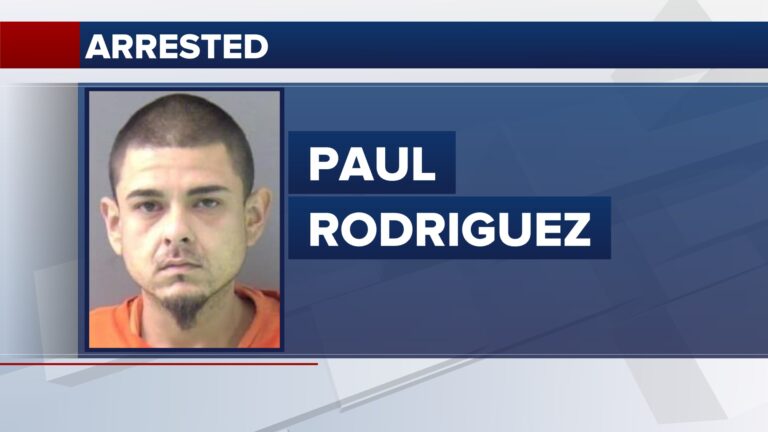FBI and realtors alert public to rising threat of rental scams
BRYAN-COLLEGE STATION, Texas (KBTX) -In the midst of rising rent, home prices, and inflation, real estate experts and law enforcement officials are sounding the alarm regarding the risk of rental scams. They are urging caution when interacting with online rental properties and real estate postings.
According to the FBI’s Internet Crime Complaint Center, reports of losses incurred by victims of real estate and rental scams have steadily risen over the past three years.
In 2022, Americans were estimated to have lost approximately $396,932,821 to real estate scams, followed by $350,328,166 in 2021, and $213,196,082 in 2020. The FBI acknowledges that these figures likely underrepresent the actual losses due to potential underreporting.
FBI Special Agent D.L. Willis says scammers often impersonate landlords, advertising rental properties they do not own at enticingly low prices to lure victims in.
“Both potential renters and property owners are susceptible to falling victim to scams. Fraudulent landlords may pressure individuals to hastily commit by requesting deposits or payments, ostensibly to secure a desirable property. Once funds are transferred, these perpetrators vanish.”
FBI Special Agent D.L. Willis (Donnie Tuggle/Bryan-College Station)
Realtor Wendy Flynn has encountered numerous variations of real estate scams, some involving fraudulent use of her listing photos and details in attempts to deceive others.
“They’ll use my pictures for their listing and then they’ll put the listing up for a very low price, maybe $800 less than what the actual rental price is. Occasionally, individuals contact me, referencing a listing at a certain address priced at $1,300 per month, whereas the accurate listing rate is $2,500 per month,” said Flynn.
Relator Wendy Flynn (Donnie Tuggle/Bryan-College Station)
“They’ll get people to contact them and they’ll say things like oh I can’t meet you in person, I’m out of town right now so if you just send me the deposit I’ll mail the key to you,” Flynn added.
Willis says consumers should exercise caution anytime they conduct business online.
“Just be vigilant, you know you work very hard for your money and sometimes you see that property and if its something that you think is too good to be true it probably is so just take your time it’s much better to make sure that you’re actually renting a property that is available and you’re dealing with someone trustworthy,” said Willis.
To avoid becoming a victim the FBI and real estate experts suggest:
Refrain from wiring funds to individuals you don’t know.Avoid investing money in a house or apartment you haven’t visited in person.Verify the landlord’s identity through public records or property ownership information.Delay completing online applications until you’ve met the property manager face-to-face.Get acquainted with local rental rates in the area.Research online reviews and contact previous tenants for references.Be wary if a potential tenant intends to rent a property without seeing it first.Exercise caution if a prospective renter claims to be remote and suggests sending a check.Be suspicious if a potential landlord claims to be abroad and requests rent to be sent to a foreign account.Steer clear of accepting excessive payments for properties; if you get a check exceeding a set amount, return it without depositing.
Should you suspect you are being targeted by a scam, discontinue all communication immediately. If money has been sent, report the transfer to your bank and lodge a complaint with the FBI’s Internet Crime Complaint Center.
Here’s how the scam works. It always involves raw land – where the owner address is not a local address. Usually with no utilities on it. I’ve seen it mostly on residential lots. The criminal calls a real estate office and asks for help selling the property. Agents often don’t verify the caller’s identity, and all listing docs are signed digitally. The criminal even sets up an email address that appears to be legitimate but is not. Once a buyer submits a contract and is ready to close, the criminal will sign the closing documents with (surprise, surprise) another criminal who is a dishonest or fraudulent notary. The money is transferred to the criminal/fake seller. When the scam is discovered, the buyers are the ones who lose money because the sale of the property is invalid. This is why you should always work with a reputable title company and why the title company I work with requires that any “mail out” closings be handled by a mobile notary company that the title company hires. It also pays to wirk with a smart knowledgable agent who stays current with the latest real estate scams. Oh criminals. If only you would use your powers for good! #wendyflynn #realestateagent #TexasRealtor #realtor #realestateexpert #buyer #homebuyer #realestatescam #realcrime #scam #scammers #rawland #land #landsales #criminals #titlecompany #title #notary #notarypublic
♬ original sound – Wendy Flynn
FBI’s Internet Crime Complaint Center 2022_IC3Report by KBTX on Scribd







